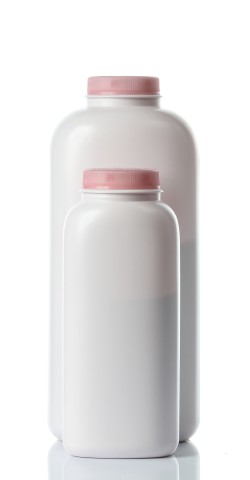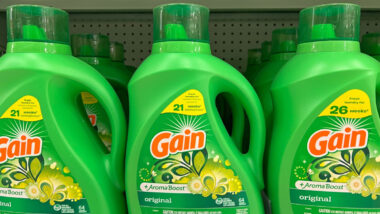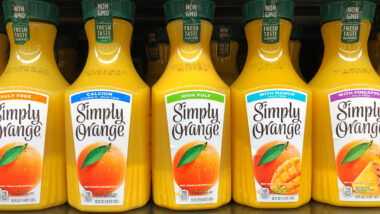
Recent studies and lawsuits, however, have raised the possibility that this popular household product may be linked to a risk of developing baby powder ovarian cancer.
What is Talcum Powder?
Talcum powder is made from talc, a mineral made up mainly of the elements magnesium, silicon, and oxygen.
As a powder, it absorbs moisture well and helps cut down on friction, making it useful for keeping skin dry and helping to prevent rashes. It is widely used in cosmetic products such as baby powder and adult body and facial powders, as well as in a number of other consumer products.
In its natural form, some talc contains asbestos, a substance known to cause cancers in and around the lungs when inhaled. All talcum products used in homes in the United States have been asbestos-free since the 1970s.
Most concerns about a possible link between talcum powder and cancer have been focused on whether women who apply talcum powder regularly in the genital area have an increased risk of ovarian cancer.
When talking about whether or not talcum powder is linked to ovarian cancer, it is important to distinguish between talc that contains asbestos and talc that is asbestos-free.
Talc that has asbestos is generally accepted as being able to cause cancer if it is inhaled. This type of talc is not used in modern consumer products. The evidence about asbestos-free talc, which is still widely used, is less clear.
About Ovarian Cancer
Ovarian cancer is a relatively rare yet deadly form of cancer. Unlike some other types of cancer, ovarian cancer may be unaccompanied by symptoms. Many diagnoses of ovarian cancer are made only after the disease has spread to other parts of the body, such as throughout the pelvic region or into the abdomen. Once this has occurred, ovarian cancer is much more difficult to treat.
The American Cancer Society estimates that in 2015, new cases of ovarian cancer will be detected in about 21,290 women, and 14,180 will die during the year of the disease.
One expert on the subject of baby powder ovarian cancer, Harvard epidemiologist Daniel Cramer, says that perineal dusting of talcum powder leads to approximately 10,000 cases of ovarian cancer each year, or about 45 percent of the total new annual cases.
Studies Link Baby Powder Use With Cancer
It has been suggested that talcum powder might cause cancer in the ovaries if the powder particles (applied to the genital area or on sanitary napkins, diaphragms, or condoms) were to travel through the vagina, uterus, and fallopian tubes to the ovary.
Many studies in women have looked at the possible link between talcum powder and cancer of the ovary. One of these recent medical studies conducted by doctors at Brigham and Women’s Hospital in Boston analyzed data from 8,525 women diagnosed with ovarian cancer and compared talcum powder use with that of 9,800 women who remained cancer-free.
The results, published in the journal Cancer Prevention Research, showed that regularly applying baby powder after bathing or showering raised the risk of an ovarian tumor by 24 percent. Talcum powder particles applied to the genital area can travel into a woman’s body and trigger inflammation, which allows cancer cells to flourish.
Furthermore, according to a recent Harvard study, women who use talcum powder in the genital or perineal region could be at a 41 percent higher risk for developing ovarian cancer.
Additionally, some studies suggest the baby powder ovarian cancer risks are greatest in the estimated one in 10 Caucasian women with a certain genetic profile. Women carrying a gene called glutathione S-transferase M1, or GSTM1, but lacking a gene called glutathione S-transferase T1 (GSTT1), are nearly three times as likely to develop ovarian cancer.
Baby Powder Cancer Lawsuits
Baby powder ovarian cancer lawsuits can be filed by women and the families of women who were diagnosed with ovarian cancer and have a history of using talc-based products for genital hygiene.
Talcum powder cancer lawsuits allege that manufacturers of talc-based baby powder products were aware of the studies linking baby powder to ovarian cancer, yet chose not to warn consumers of the heightened risk.
Do YOU have a legal claim? Fill out the form on this page now for a free, immediate, and confidential case evaluation. The attorneys who work with Top Class Actions will contact you if you qualify to let you know if an individual lawsuit or class action lawsuit is best for you. [In general, baby powder cancer lawsuits are filed individually by each plaintiff and are not class actions.] Hurry — statutes of limitations may apply.
ATTORNEY ADVERTISING
Top Class Actions is a Proud Member of the American Bar Association
LEGAL INFORMATION IS NOT LEGAL ADVICE
Top Class Actions Legal Statement
©2008 – 2024 Top Class Actions® LLC
Various Trademarks held by their respective owners
This website is not intended for viewing or usage by European Union citizens.
Get Help – It’s Free
Join a Free Baby Powder Cancer Class Action Lawsuit Investigation
If you used Johnson’s Baby Powder, Shower to Shower, or another talcum powder product and were diagnosed with ovarian cancer, you may have a legal claim. Family members of loved ones who died of ovarian cancer can also join. Submit your information now for a free case evaluation.
An attorney will contact you if you qualify to discuss the details of your potential case at no charge to you.












